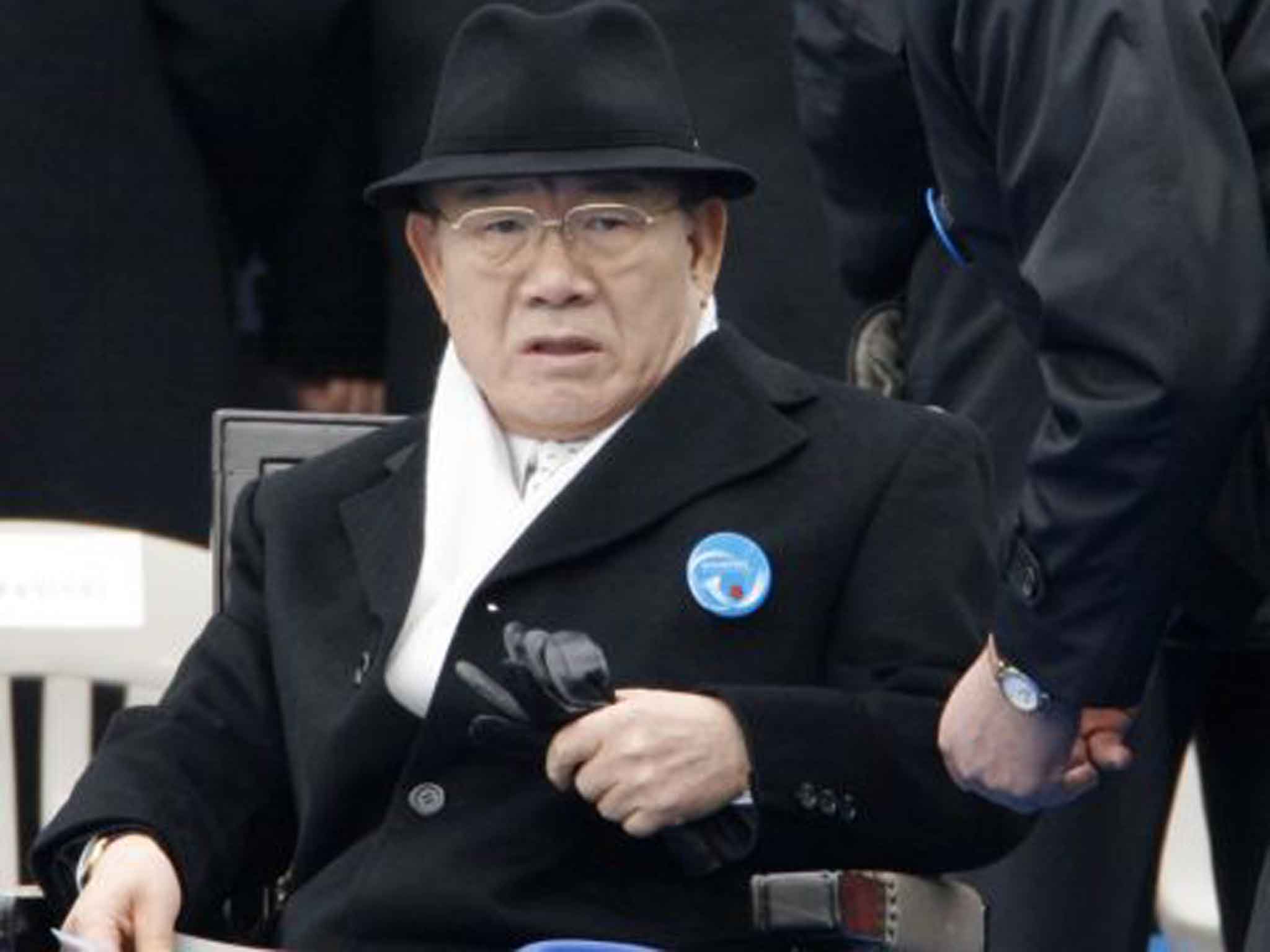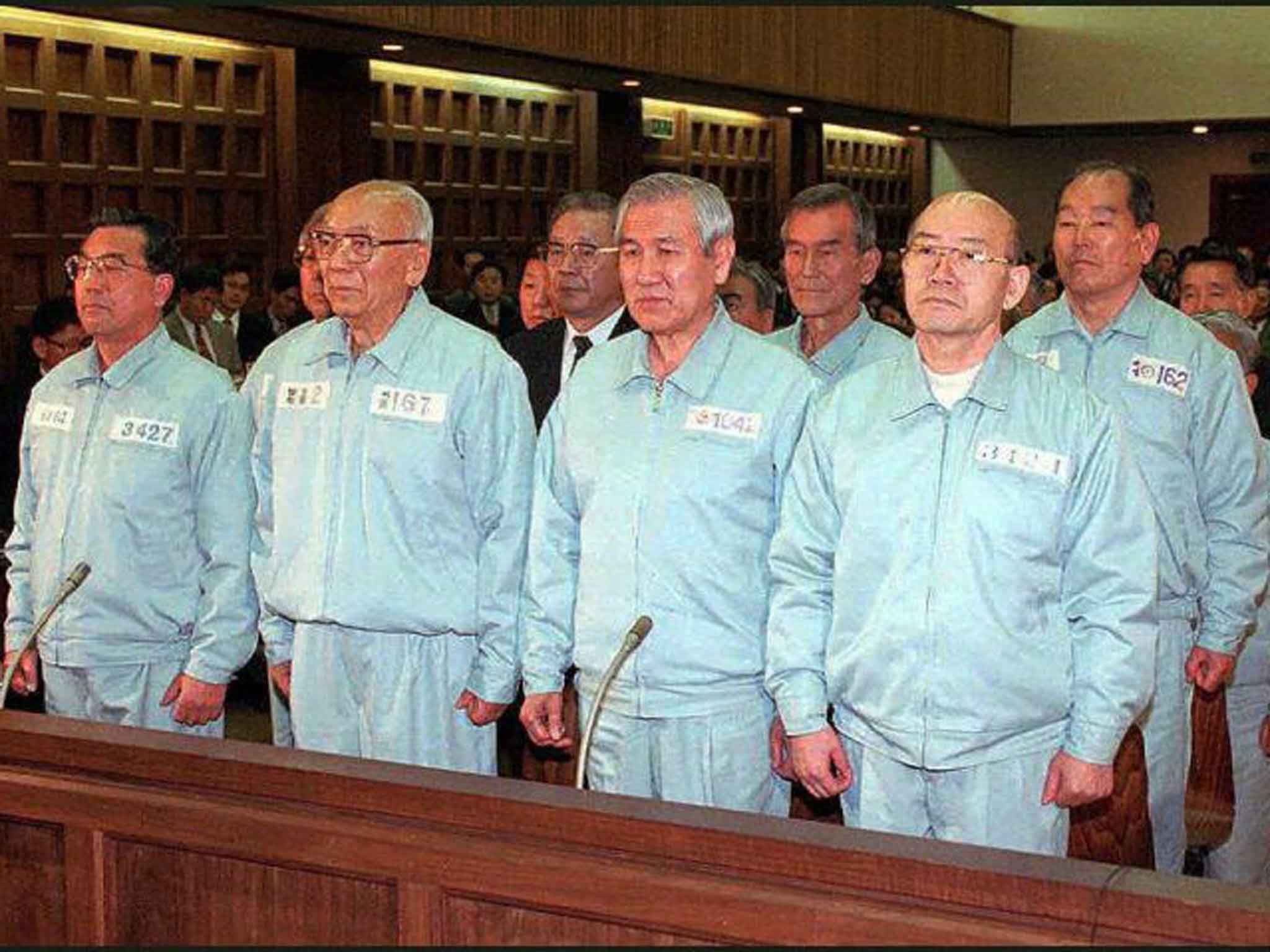Payback time: South Korea is pursuing the ill-gotten gains of its last – and most despised – dictator, 25 years after he left office
The nation democratised almost immediately after Chun Doo-hwan left office

Your support helps us to tell the story
From reproductive rights to climate change to Big Tech, The Independent is on the ground when the story is developing. Whether it's investigating the financials of Elon Musk's pro-Trump PAC or producing our latest documentary, 'The A Word', which shines a light on the American women fighting for reproductive rights, we know how important it is to parse out the facts from the messaging.
At such a critical moment in US history, we need reporters on the ground. Your donation allows us to keep sending journalists to speak to both sides of the story.
The Independent is trusted by Americans across the entire political spectrum. And unlike many other quality news outlets, we choose not to lock Americans out of our reporting and analysis with paywalls. We believe quality journalism should be available to everyone, paid for by those who can afford it.
Your support makes all the difference.South Korea’s last dictator lives in an L-shaped mansion protected by 15-foot stone walls and a plainclothes security team. He almost never goes outside, his lawyer says, given the scrutiny he’d face. Highlighting the extent of change in the nation he once ruled, Chun Doo-hwan is whiling away his golden years in a home that’s a virtual prison.
Many South Koreans view the 82-year-old as the face of a bygone but still-painful era – one filled with military coups, repression and flagrant corruption. The nation democratised almost immediately after Chun left office 25 years ago, and today is a vibrant multi-party state where presidents serve single five-year terms and shoving matches occasionally enliven National Assembly debates.
But authorities say South Korea’s transformation requires a final step: full justice for past wrongdoings. That’s why prosecutors are taking steps to reclaim the small fortune in bribes that Chun allegedly collected while in office. A 1997 supreme court ruling ordered him to pay back the money, about $200m, but he has returned only a quarter of it. He says he doesn’t have the rest.
But lawmakers say Chun has stashed his fortune in paper companies associated with family members. They note that Chun still lives lavishly, though quietly. He golfs at exclusive clubs. He was spotted last year at a wedding ceremony for his granddaughter at the Shilla, perhaps the most opulent hotel in Seoul.
Koreans regard him as a Nixonian schemer; his corruption was legend even in an era known for political payoffs. In a nation with deep ideological differences, there’s near-consensus about the effort to reclaim Chun’s money. Conservatives and liberals in the National Assembly co-operated this summer on legislation allowing investigators to drag away assets of Chun’s family, even without proof that they were illegally obtained.
In July, a team of 90 barged into Chun’s house, pulling out cabinets, paintings, jewellery and safe-deposit boxes. They also froze some of his wife’s assets and searched the homes of 29 family members and associates, according to news reports. Media members remain camped out on the edge of his property. “Mr Chun isn’t technically under house arrest,” said his lawyer, Jung Joo-kyo, “but he is not able to easily step out of his house [because of the media]”.
The raids are just the latest of Chun’s legal troubles. He spent two years in the mid-1990s wearing a prison jumpsuit, the result of a lengthy investigation that found him guilty of mutiny, insurrection and bribery. His sentence – life imprisonment, reduced from a death sentence – was commuted in 1997.

“Chun had ruled in a truly militant way,” said Choi Jang-jip, a professor emeritus of political science at Korea University. “You can safely say that Chun Doo-hwan is the worst president Koreans have ever seen.” To understand why he is so loathed, one must look at the period in which he came to power – a period when Korea was booming economically but thirsty for democracy. Chun helped maintain the growth, but historians say he’s remembered more for holding back a nation from the liberalisation it wanted.
Chun grabbed power after the assassination of long-time strongman Park Chung-hee in 1979. He cemented his control with crackdowns on student protesters who wanted free elections and the release of dissidents. In 1980 he oversaw the bloodiest incident in South Korea since the war, when special forces suppressed an uprising in the southern city of Gwangju. Several hundred protesters were clubbed and machine-gunned to death.
Still, when investigators in the 1990s scrutinised his reign, their most galling discoveries dealt with graft. Interviewing witnesses, scouring financial records, prosecutors found that 32 companies, including Samsung and Hyundai, had paid millions to Chun nearly annually.
Chun’s lawyer, in documents he submitted to the court, said the former president used nearly all of his money for political purposes while in office. The current money in Chun’s family, the lawyer said, comes from an inheritance from his wife’s father.
“Mr Chun is willing to pay all the leftover money he owes, but he doesn’t have wealth to his name,” said Jung, the lawyer. “His wife has money, and his family has some. But he personally doesn’t have the ability to repay.”
Chun is hardly the only corrupt leader in South Korea’s history, but he has become the symbol of the problem. His de facto predecessor, Park, was responsible for massive graft schemes, but many Koreans consider him a benevolent father figure who masterminded the post-war rise. Park’s daughter, Park Geun-hye, became president this year.
Domestic outcry about Chun’s unpaid debts has soared this year after an independent broadcast company, Newstapa, linked a secret offshore company to Chun’s eldest son. The company was set up in 2004, just as another of Chun’s sons had been charged with evading $15m in tax. Half of that came from Chun Doo-hwan’s slush funds, a court later ruled.
The eldest son, Chun Jae-kook, denied that the offshore company had anything to do with his father. But lawmakers say they want to investigate.
The assemblyman who drafted the bill, Choi Jae-sung, was a university student who organised protests during Chun’s rule. Mr Choi spent much of his time at college “living on the run”, he said recently. He used fake names and almost never attended class. Police arrested him in 1987, at a restaurant near his school. A year later, Chun voluntarily left office.
“South Korea’s democracy has been established very quickly,” Choi said. “But I would say this is a process by which Korea is now evaluating its own history. You can’t have full democracy without justice.”
Join our commenting forum
Join thought-provoking conversations, follow other Independent readers and see their replies
Comments